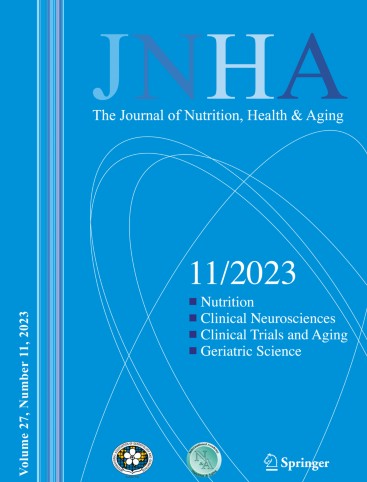急性心力衰竭患者的心血管-肾-代谢重叠、临床结局和生活质量
IF 4.3
3区 医学
Q1 GERIATRICS & GERONTOLOGY
引用次数: 0
摘要
背景:心血管-肾-代谢(CKM)多病对中国心力衰竭(HF)患者预后的影响尚不清楚。目的评价慢性肾病多病对近期和长期临床结局及健康相关生活质量的影响。方法使用来自中国多中心前瞻性队列的数据,我们根据CKM(动脉粥样硬化性心血管疾病[ASCVD])、慢性肾脏疾病[CKD]和2型糖尿病[T2D])的数量或组合对HF住院患者进行分类。Cox回归模型评估了CKM多发病与1年主要不良心血管事件(MACE)、全因死亡、心血管(CV)死亡、全因再住院、HF再住院和4年死亡率结果的相关性。广义线性模型评估CKM多病对12项堪萨斯城心肌病问卷(KCCQ-12)评分在出院后1、6和12个月的影响。结果4875例患者中,68.2%的患者至少有一种CKM症状,8.0%的患者三种症状均有。有三种CKM情况显著增加1年MACE(校正危险比[aHR] 1.87)、全因死亡(aHR 1.78)、CV死亡(aHR 1.78)、全因再住院(aHR 1.70)、HF再住院(aHR 1.76)、4年全因死亡(aHR 1.95)和CV死亡(aHR 1.78)。有三种CKM情况的患者与无CKM情况的患者相比,12个月KCCQ-12评分差为- 6.35。结论sckm多病在中国心力衰竭住院患者中很常见,并与较高的临床结局风险和较低的健康相关生活质量相关。本文章由计算机程序翻译,如有差异,请以英文原文为准。

Cardiovascular-kidney-metabolic overlaps, clinical outcomes, and quality of life in patients with acute heart failure
Background
The impact of cardiovascular-kidney-metabolic (CKM) multimorbidity on outcomes in heart failure (HF) patients from China is not well-characterized.
Objectives
To evaluate the influence of CKM multimorbidity on short-term and long-term clinical outcomes and health-related quality of life.
Methods
Using data from a multicenter prospective cohort in China, we classified patients hospitalized for HF according to numbers or combinations of CKM conditions (atherosclerotic cardiovascular disease [ASCVD]), chronic kidney disease [CKD], and type 2 diabetes [T2D]). Cox regression models assessed associations of CKM multimorbidity with 1-year major adverse cardiovascular events (MACE), all-cause death, cardiovascular (CV) death, all-cause rehospitalization, HF rehospitalization, and 4-year mortality outcomes. Generalized linear models evaluated CKM multimorbidity’s impact on 12-item Kansas City Cardiomyopathy Questionnaire (KCCQ-12) scores at 1, 6, and 12 months post-discharge.
Results
Among 4875 patients, 68.2% had at least one CKM condition, and 8.0% had all three. Having three CKM conditions significantly increased 1-year MACE (adjusted hazard ratio [aHR] 1.87), all-cause death (aHR 1.78), CV death (aHR 1.78), all-cause rehospitalization (aHR 1.70), HF rehospitalization (aHR 1.76), 4-year all-cause death (aHR 1.95), and CV death (aHR 1.78). Patients with three CKM conditions had a 12-month KCCQ-12 score difference of −6.35 compared to those with no CKM conditions.
Conclusions
CKM multimorbidity is common in Chinese patients hospitalized for HF and is associated with a higher risk of clinical outcomes and lower health-related quality of life.
求助全文
通过发布文献求助,成功后即可免费获取论文全文。
去求助
来源期刊
CiteScore
7.80
自引率
3.40%
发文量
136
审稿时长
4-8 weeks
期刊介绍:
There is increasing scientific and clinical interest in the interactions of nutrition and health as part of the aging process. This interest is due to the important role that nutrition plays throughout the life span. This role affects the growth and development of the body during childhood, affects the risk of acute and chronic diseases, the maintenance of physiological processes and the biological process of aging. A major aim of "The Journal of Nutrition, Health & Aging" is to contribute to the improvement of knowledge regarding the relationships between nutrition and the aging process from birth to old age.

 求助内容:
求助内容: 应助结果提醒方式:
应助结果提醒方式:


